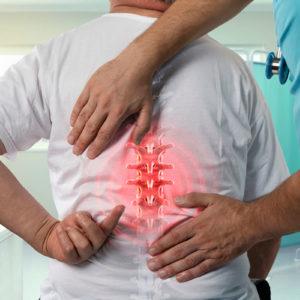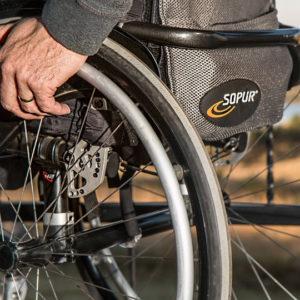
Contents
A truck accident can be devastating to your health, wellbeing, and finances. Even a minor truck crash can result in life-altering medical complications that qualify you for short term or permanent disability. Several types of truck accident injuries can prevent you from working, which may make you eligible for Social Security Disability Insurance (SSDI).
10 Truck Accident Injuries That Qualify for Disability Benefits
- Bone Fracture
- Loss of Limbs
- Neck Injury
- Spinal Injury
- Traumatic Brain Injury
- Post-Traumatic Stress Disorder
- Anxiety
- Vision Loss
- Hearing Loss
- Severe Burns
If you are involved in a truck accident, you should take immediate steps to protect yourself. Insurers will want to know that you’ve sought prompt care and followed your physician’s recommended treatment plan. Some truck accident injuries can impede your ability to work or enjoy a normal quality of life, so you need to take them seriously from day one.
Bone Fracture
Broken bones are common truck accident injuries. You should know that some fractures do qualify you for disability benefits. Typically, if you have broken bones in your arm or leg that don’t heal, even after surgery, benefits may be an option for you. However, you will need to prove that you cannot walk or perform any type of work due to the injury.
Other types of broken bones don’t usually qualify you for disability benefits, but it depends on several factors. You’ll need to show that you’re not able to perform any work due to the fracture to qualify.
Loss of Limbs
Unfortunately, severe injuries to arms or legs can result in amputations. Without your limbs, your mobility can be impaired, or you may not be able to perform routine activities associated with your previous job. When these scenarios arise, you may be a candidate for SSDI.
Amputations are serious truck accident injuries that can be life-altering and require you to use a wheelchair or other medical equipment. Keep in mind, however, that receiving and adapting to artificial limbs may allow you to resume work and cause your disability benefits to end.
Neck Injury
Neck injuries are extremely common after vehicle accidents. Many people involved in a crash, whether in a truck or a passenger vehicle, can experience whiplash due to their neck moving back and forth rapidly. While whiplash typically goes away after a few weeks, some neck injuries are long-lasting.
If you have a severe, enduring neck injury, you can consider pursuing SSDI. You’ll likely need a medical resonance imaging (MRI) report to document your condition.
Spinal Injury
Accidents are a frequent cause of severe spinal cord injuries. Your nerves carry motor and sensory impulses and control unconscious activity involving many types of body tissue.
What types of spinal cord injuries may qualify you for disability benefits? If you experience a complete loss of function or paralysis of any part of your body, you may qualify.
A spinal cord injury can impair your internal organs, such as your intestines or bladder. Spinal cord injuries can also make it difficult to walk, use your hands, remember information, or care for yourself. These scenarios and others can qualify you for SSDI benefits.
Traumatic Brain Injury
A traumatic brain injury (TBI) happens when a sudden jolt or blow to the head damages the brain. Often, a TBI can result in dangerous swelling, internal bleeding, or bruising. Even mild TBIs can cause headaches, fatigue, dizziness, or memory loss.
More severe TBIs cause a loss of consciousness for 30 minutes or more. With a severe TBI, you may suffer from lasting consequences, such as speech or language difficulties or diminished motor coordination. Symptoms such as persistent headaches, poor memory, and decreased attention span can persist for years after an accident and diminish your quality of life. You may need MRIs and computed tomography (CT) scans or neuropsychological testing to determine cognitive deficits due to a TBI.
Post-Traumatic Stress Disorder
A trucking accident can be a shocking and horrific experience—and could result in you developing post-traumatic stress disorder (PTSD). Suffers of PTSD have symptoms such as flashbacks, nightmares, and sleep disturbances due to a traumatic event. They may also have difficulty concentrating and issues with memory that can impede their job performance.
Severe PTSD symptoms can disrupt your functioning and ability to work in jobs that you’ve performed previously. In these situations, SSDI is a possibility.
Anxiety
While PTSD is a type of anxiety disorder, there are others that can affect you after a trucking accident. Generalized anxiety disorder is a relatively constant state of distress and worry that lasts at least six months. An accident can also cause someone to develop a panic disorder that provokes disruptive episodes of terror or fear. Phobias, which are irrational fears of normal events or situations, can develop after a serious accident.
In general, it can be difficult to qualify for SSDI due to an anxiety disorder—but it’s not impossible. You’ll need a well-documented history of treatment by medical professionals, including a physician and mental health professional. Your documentation will need to show how your anxiety prevents you from working to qualify for SSDI.
Vision Loss
Any trucking crash can cause permanent harm to your vision—and that can have life-altering consequences. You should know, however, that you do not need to be completely blind to qualify for SSDI benefits.
Instead, you may qualify if your visual acuity is below 20/200 in your better eye or if you can show that your visual field is shrinking and becoming very narrow. Also, if your vision is consistently blurry or unfocused and is not well remedied by corrective lenses, disability benefits can be available to you.
Hearing Loss
Hearing loss may occur after an accident due to a head injury. At times, deployment of an airbag can cause an injury to the inner ear. Some air bags cause extremely loud sounds that are even louder than the noise of a crowded stadium. This type of acoustic trauma can cause hearing loss.
To qualify for disability, you will need to show that your ability to hear sounds conducted through the air near your ears or in the bones of your middle ear is low. Alternatively, your ability to distinguish words may be diminished. If you receive a cochlear hearing implant to correct your hearing loss, you can qualify for disability for up to one year after surgery.
Severe Burns
A trucking accident can result in painful burns that can affect your life and wellbeing. You can qualify for disability benefits if you have serious burns on your face, trunk, or upper or lower extremities that require surgical management. If your burns don’t require surgery, you may qualify if they cause impairment of a major function of the body or result in serious skin lesions.
What to Do After a Truck Accident
After a truck accident, you should seek medical care and contact an expert attorney. You can find experienced truck accident attorneys who know how to help you gain the maximum insurance benefits and advise you on applying for Social Security Disability Insurance (SSDI). Also, your attorney can help you with your truck accident case if it goes to court.
You may also need to engage with an insurer or the trucking company that owns the vehicle involved in the collision. In most cases, your best bet will be to rely on your attorney to represent you to these other parties.
Once you’ve received medical care, you can understand the extent of your injuries and how they will impact your life. Many types of injuries can qualify you for SSDI benefits if they continue or are expected to continue for more than 12 months.
Can I Get Short Term Disability After a Truck Crash?
Any truck accident injuries can cause you to miss work. And that can take its toll on your income and finances very quickly. Unfortunately, it takes time to apply for SSDI and wait for approval. The process also requires extensive medical documentation. You may be wondering if short-term disability is available to fill in financial gaps.
You should know that SSDI is not connected to short-term disability and requires that you be unable to work for at least 12 months. However, five states do offer short-term disability for individuals who were not injured at work. The states with short-term disability options are California, Hawaii, New Jersey, New York, and Rhode Island.
If you don’t live in one of these states, find out if your employer offers short-term disability benefits. Keep in mind that these benefits often only pay a portion of your salary. But every dollar helps when you’re recovering from a serious vehicle accident.
How to Qualify for SSDI Benefits After a Truck Crash
Whether you are a truck driver, truck occupant, or a passenger in a motor vehicle, you can potentially qualify for SSDI due to long-lasting truck accident injuries. It’s important to know that you do not need to have a permanent disability to qualify for SSDI.
At a minimum, your truck accident injury must prevent you from working for at least one year. You also must not be able to perform any other job. It’s easy to see how a catastrophic injury, like permanent paralysis, may qualify you for SSDI. However, other less-severe injuries can make you a candidate for disability benefits. A personal injury or truck accident lawyer can guide you through the SSDI application process.
Truck Accident Injuries Can Have Devastating Consequences
A car accident injury can be terrible, but a truck collision can have even more devastating circumstances. The sheer size of a large truck can bring added force to a crash that can create more severe injuries for affected partiers. If you’re involved in a crash with a commercial truck, always take action to safeguard your health and finances right away.
While adrenaline may carry you through the shock of the moment, you may have a neck or head injury that can cause enduring pain, or you may develop anxiety or PTSD symptoms after the event. Any accident can result in a severe injury that lasts for years, so get a medical evaluation right away.
No matter your role in the crash, an accident lawyer or personal injury attorney can provide expert support and guidance. Your attorney can offer advice to help you secure insurance payouts and assist you with determining your eligibility for SSDI. These professionals know how to work with a truck accident victim and can answer all your questions.
Even seemingly minor truck accident injuries can disrupt your work and day-to-day functioning. Unfortunately, collisions between a semi-truck and a passenger car happen often. A tractor trailer accident can cause damage to multiple cars and injuries to dozens of people.
Don’t let truck accident injuries destroy your life. Get the professional expertise you need and look into the possibility of SSDI benefits. With the right guidance from a Social Security disability attorney and smart choices, you can safeguard your wellbeing and help prevent unwanted financial consequences after a truck accident.





Comments are closed.